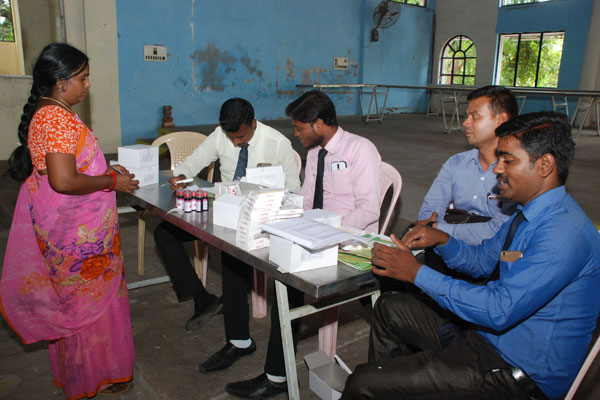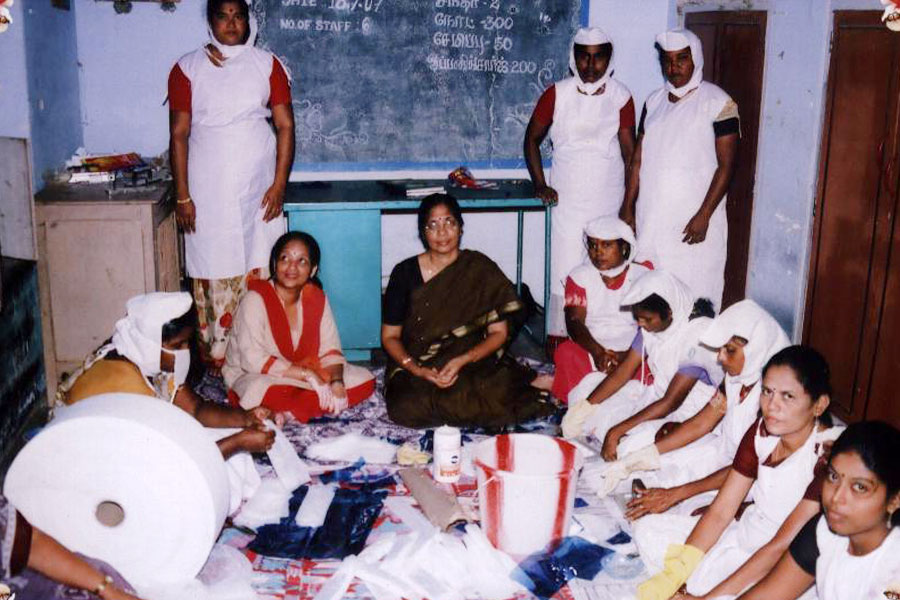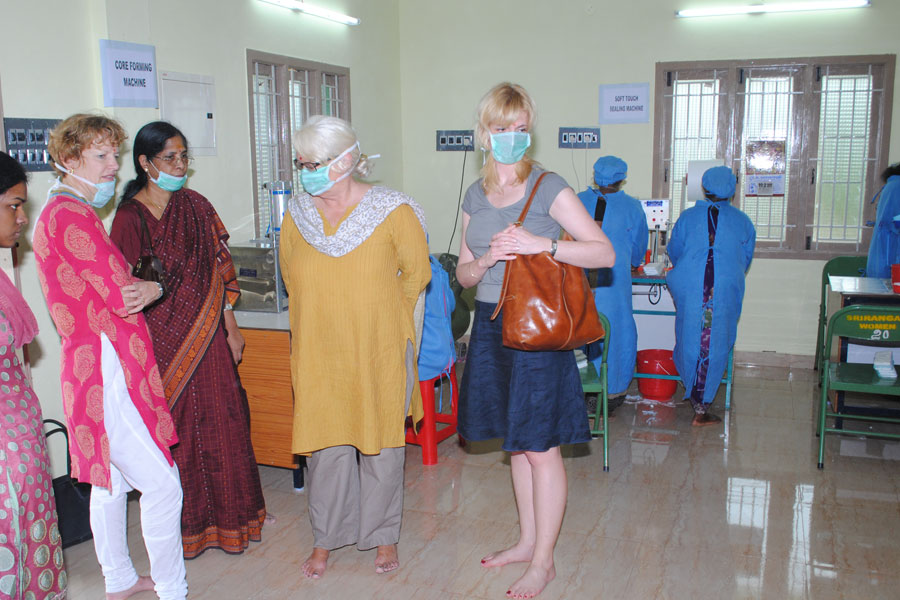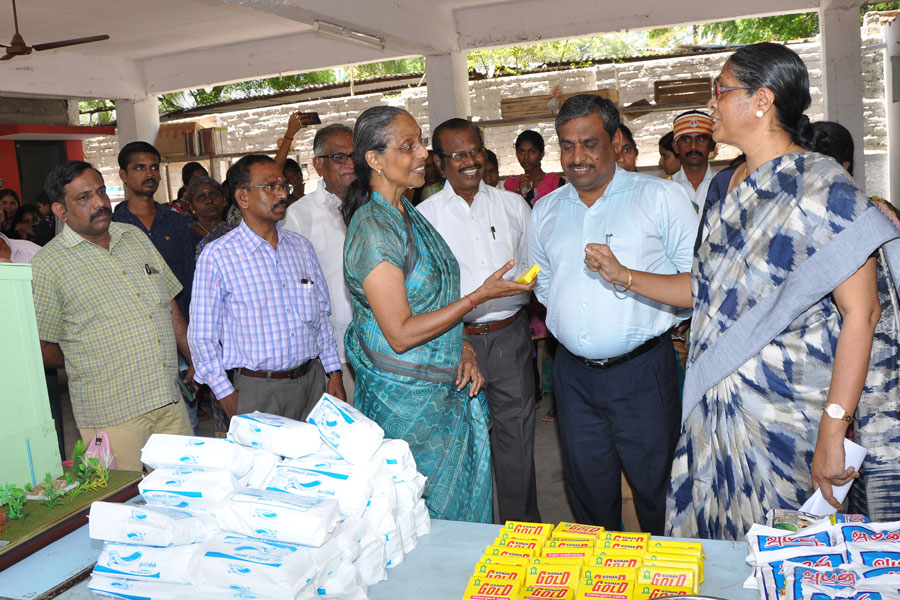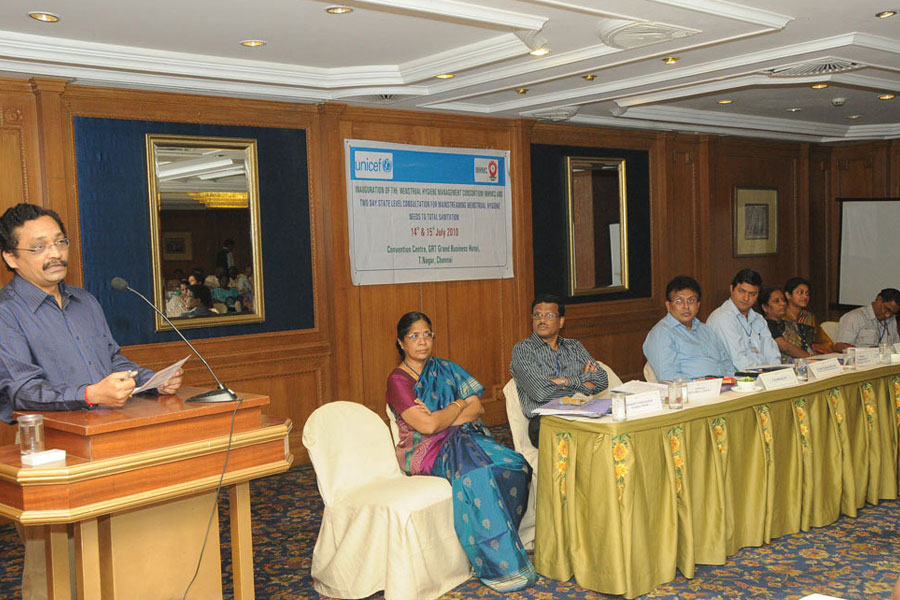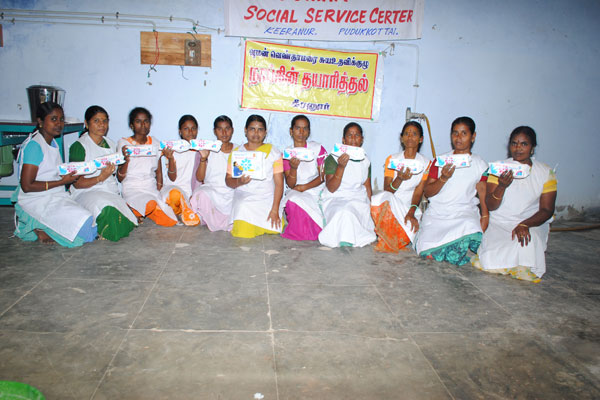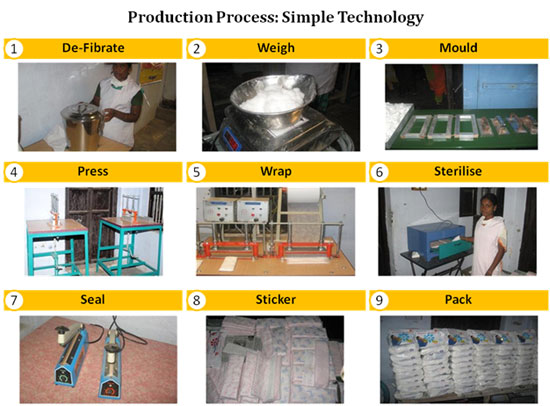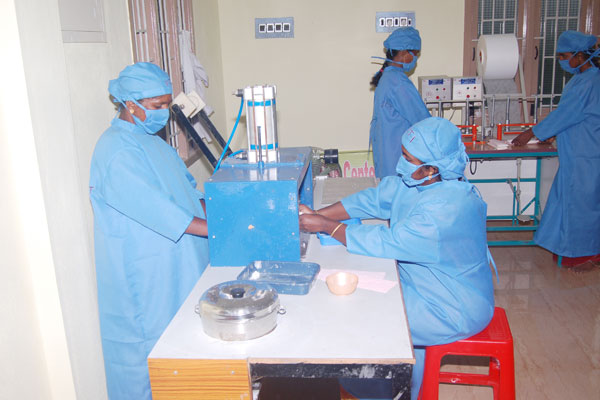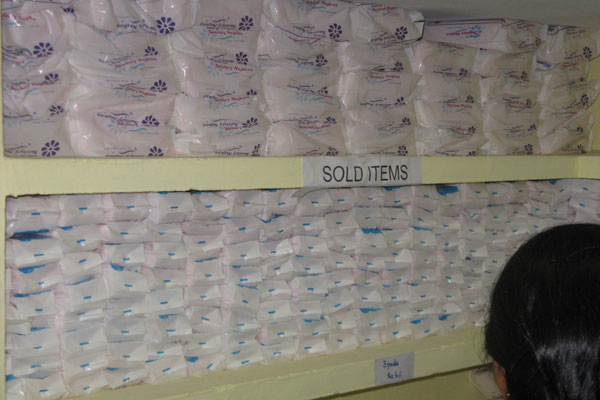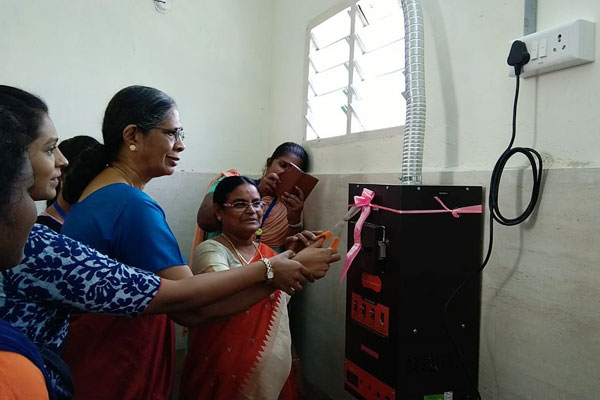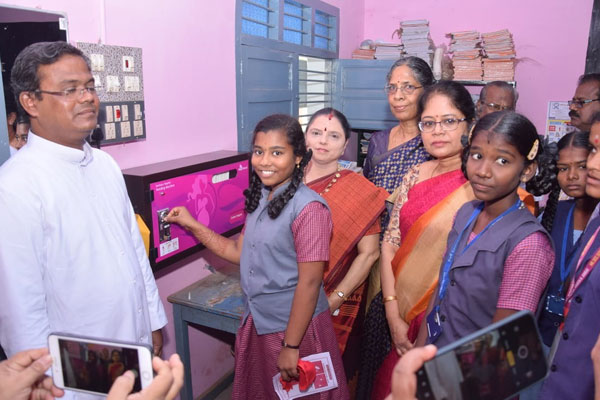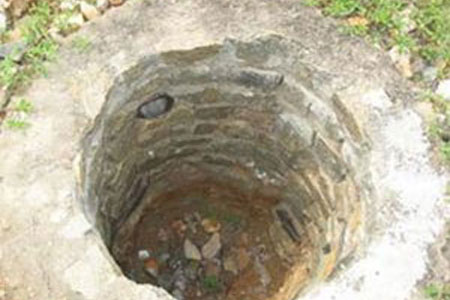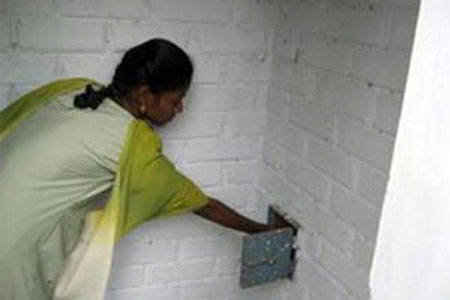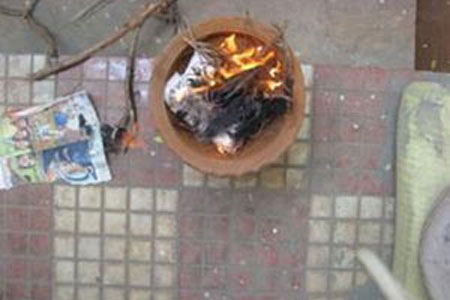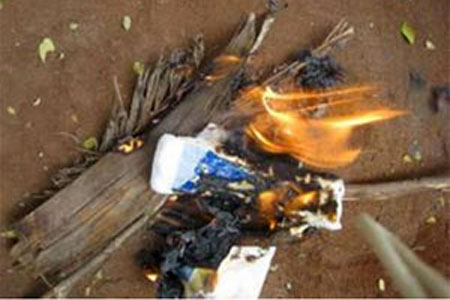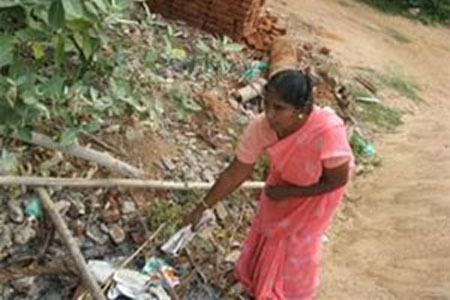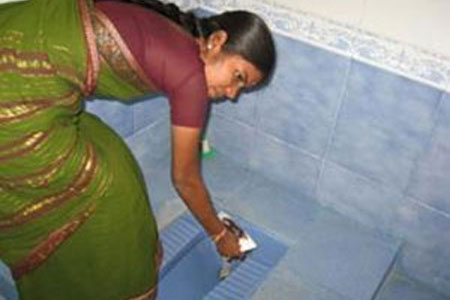Gender biase even in health and sanitation
Women are very much discriminated not only against health but against sanitation and hygiene,in our society. The personal cleanliness, using toilets,handwashing were taught by many organisation but using of napkins was not taught until 2007. The women felt shy talking about the menstrual hygiene and the related problems.Even the society while ready to talk about family planning and HIV related problems, it neglected the menstrual related problems.
Sanitation is a human right and a key component of primary prevention to ensure better health
Menstrual Hygiene Survey
- We started the Menstrual Hygiene campaign in the year 1992 in 17 villages.
- we have made survey with women in all these villages.
- Whether they use clothes/pads during menstruation.
- How they dispose the used clothes/pads.
- How much they pay for purchasing the clothes.
Results of the survey
Most of the women used dirty/old clothes.They reused the clothes for several times for several months. They are not aware of the usage of sanitary napkins:even if they are aware, they are not willing to spend the money for the pads/clothes.
Even in urban areas, the sitiuation was same or still worse that the women threw the used clothes/padsin the streets, river, pools or toilets.
Sanitation gives dignity to women
Awareness programmes
Our believesthat Sanitation and Hygiene gives dignity to women
- We have taken the message not only to the women but to the men that:
- "Menstruation is a natural physical process"
- "A WOMAN need not be ashamed of herself"
- "The physical discomforts of menstruation experienced by every women is a vital sign of good health and fertility"
- "It indicates the body's ability to reproduce - an amazing phenomenon of nature since the beginning of time that is vital for existence of the human race" Menstruation is Vital for the Existence of the Human Race.
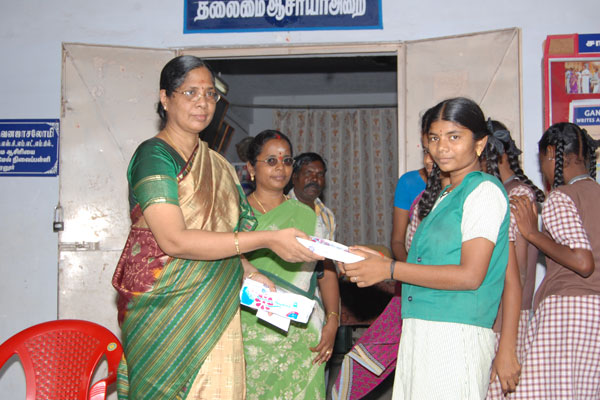
Awareness at School
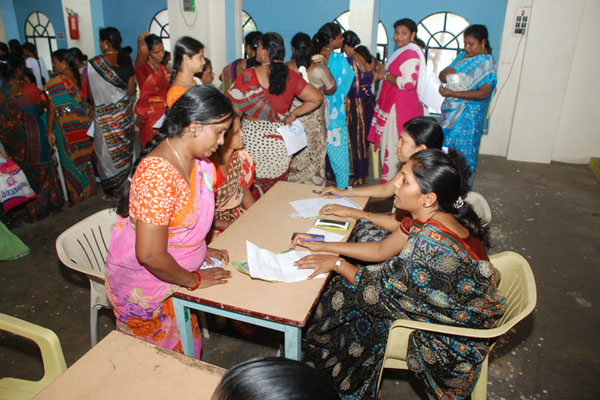
Doctors Examine at Health Camp
